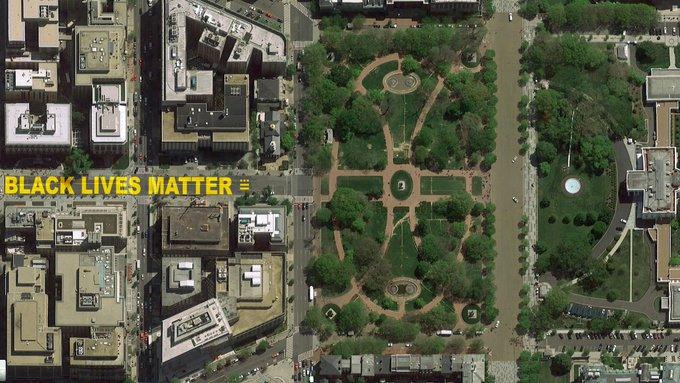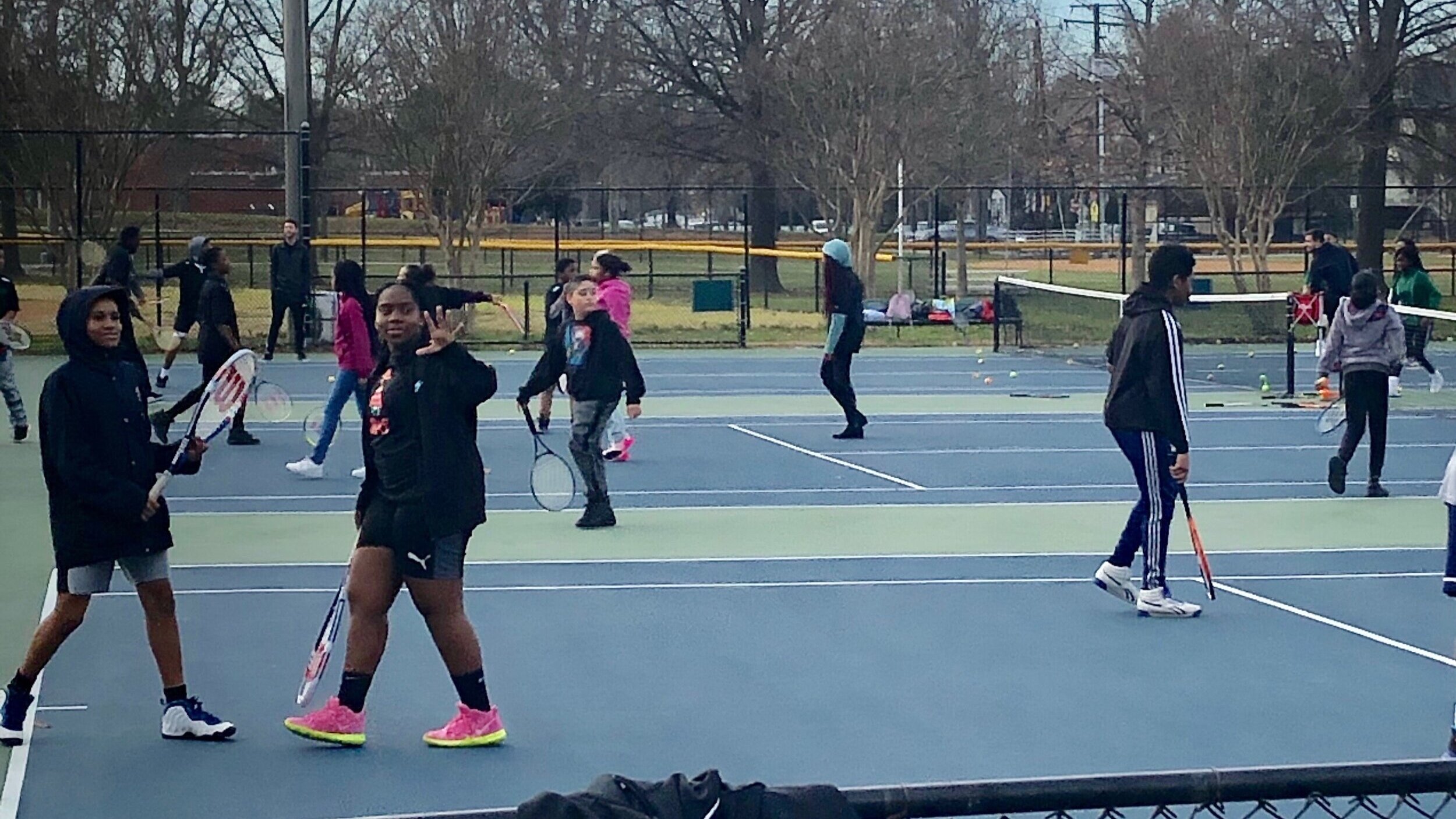My Black Teachers, Then And Now
Let me introduce you to my Black teachers over the years, past and present. A bit of background first. Teaching philosophy since the mid-eighties in Central Virginia taught me invaluable lessons.
I presented racism to my community college students as part of the DNA of the USA. Created by white men to justify their superiority, the social construction of racism permeates culture, government, business, education, sports, health care. This systemic disease infects the whole country, both its structure and its inner workings. Racial injustice often goes unquestioned because its origins go back 400 years—without education, whites can take their privilege for granted and embrace the world as it is. Only ignorance of history and denial of facts allow racism to survive.
In every class I posed three questions as proof of wide-ranging gaps in mainstream education in this country. 1) How many Jews were killed in the Nazi concentration camps—many hands go up, quick to answer “six million.” 2) How many indigenous people died when Europeans “settled” in North America. Not one hand, ever. 3) How many Black people died in the African slave trade? Not one hand, ever. Let’s educate ourselves together, I encouraged, knowing rocky classes and office hours awaited me.
Students discussed Merriam-Webster’s longstanding definition of racism, one that quite soon will change due to the challenge of a recent Missouri college graduate. Kennedy Mitchum insists now, as some of my students did then, that the current definition fails to address the meaning of “systemic racism.” Oh, how I could have used this needed change—racism as a system, above and beyond individual behavior. White male defenses reverberated, this class and that class, year after year, the same ears-closed statements—hot-tempered, instantly-triggered reactions. “I haven’t done anything, don’t blame this on me.” “My family works hard, and we don’t complain and ask for help.” “I’m not giving up anything I’ve earned.” “The white male can’t catch a break. Everything is always our fault.” On this topic these students fought determinedly against the very education that they were in class to pursue—to learn the facts, study the history, read varied multicultural perspectives, and thereby understand the meaning of systemic racism. “The flu makes your entire body ache—it’s an attack on your system,” I offered. “I never questioned my access to Byrd Park’s public courts, learning to play tennis as a child—but as a Black girl or boy in Richmond I couldn’t even go to the Park, much less play tennis,” I continued. Choosing ignorance over education, these same students immediately rejected any merit in the unread writings of bell hooks, Patricia Hill Collins, the poetry of Audre Lorde—Black women who weren’t “real philosophers.” Adamant and threatened, they couldn’t get out of their own ways to see that this issue wasn’t about them or their views—it was an education in Black history and experience.
Oh, but I had champion teaching assistants in the classroom with me. Meet my teachers in those days, Black students who educated their classmates better than I. I have countless examples of their hard-won wisdom, and these are but a few. Heretofore frozen faces melted, eyes downcast, when their friends spoke up.
An Army veteran listens to repeated, individual denials of racism from his classmates. When they finish, he speaks softly. “When I was stationed in the South, Black recruits and officers didn’t leave the base after dark. We were warned that the walk from the bus was too dangerous, but some risked it. While I was there, one Black serviceman was found floating in a creek and another was lynched. No charges were filed.
A Black single father asks classmates if they know what “the talk” is—a few females nod, recalling their mother-daughter puberty sit-downs. “No, it’s the talk I’ll have with my five-year-old son soon, too soon, about how to stay safe, how to hold himself, how to avoid any confrontation, every time, no matter what. I fear for his life. And mine.”
A Burmese student asks why he hasn’t learned about indigenous tribes in history classes, and I encourage him to ask his teachers. A German student replies: “In middle school we begin to study the Nazis, then in high school we visit a concentration camp. We know it all, start to finish.” A Black student asks if anyone knows the history of the fires in the Bronx in the 1970s. I don’t. Students don’t. He educates us.
A Black woman arrives late to Ethics class with this explanation: “All my grandparents’ possessions are in the yard. I just left them crying. After the area was gentrified, they tried so hard but still couldn’t keep up with skyrocketing taxes. The house had been in the family forever. I spent my childhood there. Gone.”
My college students tutored at struggling elementary schools, the populations almost entirely Black. One Principal: “The biggest thing the children take away from your students is the hope that they will live to be their age.” My students overhear young Black boys chatting about whether they will wind up in prison or the community college, the only choices they’ve ever known. Matter of fact.
My most provocative teacher/student, after a discussion of systemic racism and the consequent hunger and poverty: “It kills,” she whispered with tears trickling down her face, a woman who knew from experience.
It’s up to each of us to listen and learn. Welcome change. Racism withers and dies in the face of reality. No biological justification for racial separation exists. It’s a wicked invention. The choice is clear—knowledge or ignorance.
My Black teachers today offer perspectives only they can. I’m humbly astounded at how much I learn daily, how much I didn’t know. I study what a white ally and anti-racist means to Black people—forget my assumptions. I know some things—my instructors Know Things. Here’s where I turn—just some of my mentors.
I took this photograph on March 2, 2020 at Richmond’s Byrd Park tennis courts. Yes, Black players can now compete. But as I look more closely, I wonder if this is true progress—white instructors and one white boy among mostly Black girls. My new approach to education requires that I ask those in the know.
Dr. Cameron Webb, campaigning to represent Virginia’s Fifth Congressional District, educates me daily about racism and its far-reaching effects. He provides a reality-check and ways to transform thoughts into deeds—as smart as he is, I’ve never met a better listener. I learn from Cameron’s wife, Leigh-Ann, like him a physician at the University of Virginia. I may have understood, intellectually, the intersection of the virus and racism pandemics, but the Drs. Webb live it. And how about this short video of their daughter Avery, describing her trip to Richmond, my hometown! If only Avery could have been a guest speaker in my classes—Avery’s take on the photo is the one I seek.
More of my go-to teachers:
I listen to Senators Cory Booker and Kamala Harris, Representatives John Lewis, Val Demings, Alexandria Ocasio-Cortez, and Barbara Lee. Knowing their cities well, Mayors Keisha Lance Bottoms, Lori Lightfoot, and Muriel Bowser bring Black lives into mine. The Reverend William Barber’s voice moves me as it echoes Dr. King’s “Poor People’s Campaign.” I read and re-read the mission statement of Black Lives Matter and the writings of Toni Morrison, James Baldwin, and Angela Davis. Online magazines deliver, such as “The Root,” especially Michael Harriot. I continue my students’ tireless efforts to educate me musically—introduced by them to Tupac and Mary Blige, I investigate LL Cool J’s new “Rock the Bells” initiative and tune way into Alicia Keys. I look for articles/ commentary by Kareem Abdul- Jabbar, Charles M. Blow, Michael Eric Dyson, Roxane Gay, Jemele Hill, Jelani Cobb, and Yamiche Alcindor. I care what JJ Johnson says about the restaurant industry, police, and Black businesses. I hang on every word from commentators Maya Wiley and Eddie Glaude. I cheer for Colin Kaepernick and his Foundation. Carol Anderson’s White Rage and Ta-Nehisi Coates’s Between the World and Me make fine companion pieces. Recent films for reflection and discussion abound, among them: “If Beale Street Could Talk,” “Moonlight,” “Mudbound,” “Just Mercy,” “BlacKkKlansman,” “Da 5 Bloods.”
Three powerful female vocalists take the stage. Billie Holiday and Bettye Lavette give us a taste of “Strange Fruit.” Nina Simone touts being “Young, Gifted, and Black,” and her rendition has even more poignancy after watching the documentary “What Happened, Miss Simone?”.
Two poets lift us up. “Give birth again / To the dream,” Maya Angelou intones “On the Pulse of Morning.” Ross Gay loves the gold dust of his “Lily on the Pants,” it kills him with delight. “…The flower kissing, the moving so close to another living breathing thing’s breath, which in this case is that of the lily….”
Lilies from my garden, back at you, enough for everyone.
May we move closer to all breathing thing’s breath.







Told with McCarty’s characteristic wisdom, marvel, exuberance, and good will, Leaving 1203 is about navigating that way through. The author draws on all available resources—friends and strangers, food and laughter, life lessons learned in the very house she now empties, and, not least, her newly-inherited West Highland terrier, Billy. McCarty simultaneously learns and deftly teaches the fine arts of remembering, letting go, and holding on to what matters most. She not only finds the way through, she shows the way.
the greatest gift an author could give a reader… lessons of a universally philosophical and existential kind… a touching journey… a welcome, upbeat ride
Read More & Buy